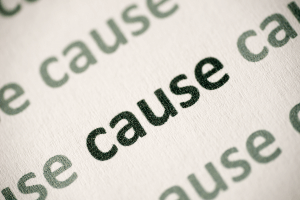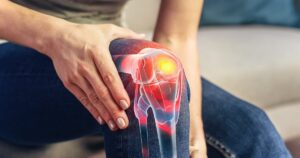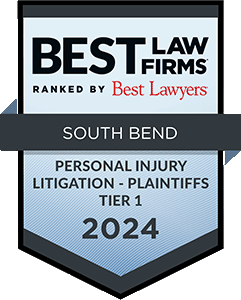 There are four elements of negligence, the legal theory most personal injury cases are based on. All four elements of negligence must be proven to have a chance of recovering compensation for damages during an injury claim.
There are four elements of negligence, the legal theory most personal injury cases are based on. All four elements of negligence must be proven to have a chance of recovering compensation for damages during an injury claim.
One of those elements is causation, which is the link between a person’s actions, or lack of action, and the injuries suffered by the victim.
Our car accident lawyers in South Bend understand the challenges involved in proving causation and are prepared to help you. Our attorneys may be able to help you investigate the accident and gather the evidence that may help prove someone else’s negligence caused your injuries.
Below, we discuss why causation is important and what type of evidence may be used to establish it.
Why is Proving Causation Important?
Many people argue that causation is the most important element of negligence. Without causation, there is no case because there is no connection between the at-fault party and the injuries and damages suffered by the victim.
If you can only prove the other party’s negligent actions resulted in an accident, but cannot link the accident to your injuries, or you cannot link the accident to the other party’s negligence, a jury may not be persuaded to award you the compensation you need.
With help from our experienced attorneys, you may be able to focus on recovering from your injuries while we gather the necessary evidence to build your case.
What Evidence May Be Used to Prove Causation?
There are two factors of causation that must be proven. The first being that the other person’s negligent actions resulted in an accident and the second one is that your damages resulted from the accident.
Some evidence that may be used to link another driver’s actions to a crash may include things like:
- Eyewitness testimony, particularly if the other driver was observed speeding, driving distracted or driving in an otherwise negligent manner.
- Police report – The responding officer who writes the report may be able to determine the cause of the crash and whether it was due to one driver’s negligent action or inaction.
- Surveillance footage – Video footage from the accident may help your lawyer determine whether the driver was acting in a negligent manner before the crash.
Evidence that may be used to prove your injuries were a direct result of this accident may include:
- Medical diagnosis – Getting an MRI, CT scan or X-Ray after the accident may help prove that you suffered an injury.
- Medical notes from a professional – Your doctor may be able to provide notes from your visits to support your claim that your injuries were a direct result of the accident.
Depending on the facts of your case there may be other pieces of evidence that could help bolster your claim for recovering compensation.
Causation and Preexisting Conditions
Proving your injuries were a direct result of an accident caused by someone else may become more complex if you have any preexisting injuries or conditions. However, you can still recover compensation if you were injured in a previous incident or have a disability.
Our lawyers need to gather medical evidence to differentiate between your symptoms before the accident and how they have changed since the accident. However, avoid handing over your medical records to the insurance company. Allow your attorney to help you determine the medical records that will need to be disclosed to the insurance company.
If you have a medical condition that may have increased your likelihood of being seriously injured in a minor accident, our attorneys are prepared to help you gather the necessary information from your treating doctors that may help you recover the compensation you need.
We Are Prepared to Help. Call Us Today
Proving causation in an injury claim may be a complex process, so it is important to have a knowledgeable attorney on your side to help you gather the necessary evidence and help you stand up to the insurance company when it tries to deny your claim.
Our attorneys have decades of experience helping prove causation and the other aspects of negligence, and we have helped many clients recover compensation after an accident.
The consultation to discuss the facts of your claim is free and there are no fees unless we win.
Call us today at (844) 678-1800 to learn more about your legal options.











